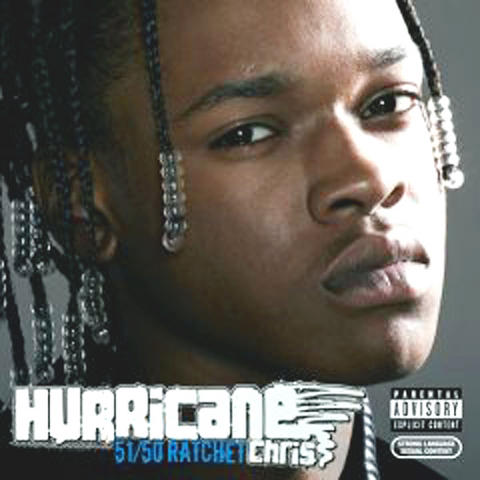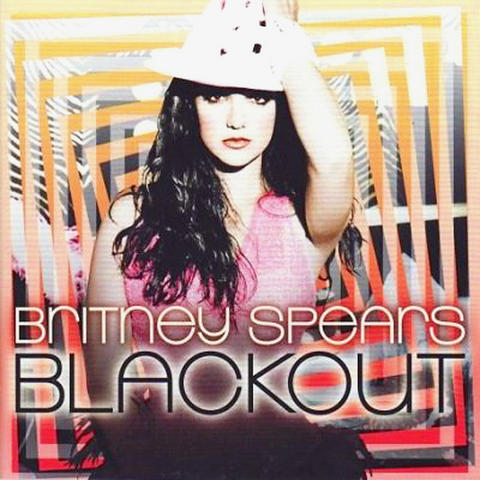Just when it seemed safe to write off Britney Spears as a punch line only capable of entertaining people through tabloid escapades, she goes and gets all musically relevant on us.
Blackout, her first studio album in four years, is not only a very good album, it is her best work ever - a triumph, with not a bad song to be found on the 12 tracks.
Granted, a Spears rave should be put in its proper context - it is not like we're talking Bob Dylan here. Spears is a lightweight singer who only flourishes when she has great songs and great producers to supplement her minimal vocal talent.

But when she has that help, she is fierce. And she gets that boost on every single track on Blackout, a sizzling, well-crafted, electro-pop dance fest that should return her to pop's elite.
Spears emerges on Blackout as the antithesis of her tabloid persona - confident, sensual, and in control.
"I got my eye on you," she coos on one of the album's best tracks, Radar, a sexy techno groove that you can't help but bounce to. It's all about generating heat on the dance floor.

On the aptly titled Freakshow, produced by Danja (who worked on Justin Timberlake's FutureSex/LoveSounds), Spears gets voyeuristic with a tantalizing promise to get wild in the club. The hypnotic Get Naked (I Got a Plan), also produced by Danja, features Spears breathlessly asking, "What I gotta do to make you move my body," before demanding, "take it off, take it off, take it off."
Listening to Blackout is not only an energetic release, it is also a relief: No, Spears has not completely lost it, and yes, her career has a flicker of fire left.
Two years ago Chris Brown's self-titled debut album had hard hip-hop beats to match his lightweight love songs, and part of his appeal was that he wasn't too old to flash a big smile or flaunt his good manners. His was a simple and hugely effective strategy; in a radio landscape dominated by sordid R 'n' B and gruff hip-hop, Brown out-niced the competition.

Now Brown returns as a relative veteran and, as of a few months ago, a legal adult. It hasn't been easy. After a single, Wall to Wall, failed to build momentum, his new album, Exclusive, was delayed. Now he's back on top with Kiss Kiss, the second single, which hit number one on Billboard's Hot 100 chart last week.
Oddly, Exclusive finds a formerly enthusiastic boy sounding a bit anxious about his position as a full-grown lover-man. The album begins with Throwed, a rather inert dance track that's supposed to be a tribute to the homegrown Washington funk sound known as go-go.
Elsewhere he borrows brazenly from R 'n' B contemporaries: With You could almost be a cover of Beyonce's Irreplaceable. Damage, a dreary ballad, isn't improved by the T-Pain-ish vocal processing. I Wanna Be starts with a sotto-voce introduction that's bound to remind listeners of Usher's Burn. It's odd to hear a likable young star sounding so desperate.

But when he relaxes a bit, he discovers that his old approach works as well as it ever did. Hold Up has a squelching bass line and some loopy rhymes from Big Boi, and Lottery is four minutes of Brown in can-I-have-your-number mode. Then there's Down, a thrilling mishmash with a stomping beat, a heraldic electric guitar line, a memorable Kanye West appearance and a monster chorus that should come blasting out of radios sometime in the next few months.
It took the Eagles 28 years and 13 years of reunion tours playing oldies to come up with a new studio album, Long Road Out of Eden. And they could have made most of the album back in 1979. Back then, they were young stars singing well-made, meticulously harmonized, twang-tinged pop songs about the disillusionment and self-pity of a comfortable American life. Now even more world-weary, they cling to their old musical templates.
They sound, all too neatly, like the Eagles of yesteryear in the Almost Gone boogie of How Long, the Tequila Sunrise revamp Waiting in the Weeds and the falsetto funk of Fast Company, which could be a late-1970s Bee Gees take on Life in the Fast Lane.
Not until 12 songs into the album do the Eagles unveil something contemporary: the 10-minute title song. It's their take on the war in Iraq, declaring, "the road to empire is a bloody, stupid waste." The music is customized with what sounds like a duduk, an Armenian flute, and a military snare drum, but it's still the kind of stolid, mid tempo song the Eagles have long relied on, with a guitar solo that virtually reruns Hotel California, stopping unfortunately short of the twin guitars.
With the first couplet of his inescapable hit single, A Bay Bay, the 18-year-old rapper from Shreveport, Louisiana, known as Hurricane Chris established himself as one of hip-hop's most promising young stars. In case it's not already imprinted on your brain: When I holler 'A bay bay,' I'm finna get my groove on/It's so hot up in the club that I ain't got no shoes on. Just like that he painted a vivid, if misleading, portrait of nightlife in northwestern Louisiana.
A mixtape, Louisi-Animal, further revealed his knack for playful, dexterous rhymes. Now, at long last, comes his major-label debut, 51/50 Ratchet. Sadly, it doesn't do much to advance his cause. The beats are puzzlingly dull; Phunk Dawg, the Baton Rouge producer behind A Bay Bay, doesn't contribute anything else to match that song's sleek propulsion. And while Hurricane Chris excels at loopy rhymes that sound like freestyles, this album doesn't give him much chance to show off his antic approach.
The occasional slippery, sing-song refrain hints at the addictive album he might still make one day, with a big budget or without. And his disarming sense of humor remains his greatest advantage. In Leaving You he absent-mindedly repeats his catchphrase, then promptly fesses up, rapping, "This supposed to be a sad song, but I said 'A Bay Bay.'" Bad news and good news, then: "promising" is still the word.

That US assistance was a model for Taiwan’s spectacular development success was early recognized by policymakers and analysts. In a report to the US Congress for the fiscal year 1962, former President John F. Kennedy noted Taiwan’s “rapid economic growth,” was “producing a substantial net gain in living.” Kennedy had a stake in Taiwan’s achievements and the US’ official development assistance (ODA) in general: In September 1961, his entreaty to make the 1960s a “decade of development,” and an accompanying proposal for dedicated legislation to this end, had been formalized by congressional passage of the Foreign Assistance Act. Two

March 31 to April 6 On May 13, 1950, National Taiwan University Hospital otolaryngologist Su You-peng (蘇友鵬) was summoned to the director’s office. He thought someone had complained about him practicing the violin at night, but when he entered the room, he knew something was terribly wrong. He saw several burly men who appeared to be government secret agents, and three other resident doctors: internist Hsu Chiang (許強), dermatologist Hu Pao-chen (胡寶珍) and ophthalmologist Hu Hsin-lin (胡鑫麟). They were handcuffed, herded onto two jeeps and taken to the Secrecy Bureau (保密局) for questioning. Su was still in his doctor’s robes at

Last week the Democratic Progressive Party (DPP) said that the budget cuts voted for by the China-aligned parties in the legislature, are intended to force the DPP to hike electricity rates. The public would then blame it for the rate hike. It’s fairly clear that the first part of that is correct. Slashing the budget of state-run Taiwan Power Co (Taipower, 台電) is a move intended to cause discontent with the DPP when electricity rates go up. Taipower’s debt, NT$422.9 billion (US$12.78 billion), is one of the numerous permanent crises created by the nation’s construction-industrial state and the developmentalist mentality it

Experts say that the devastating earthquake in Myanmar on Friday was likely the strongest to hit the country in decades, with disaster modeling suggesting thousands could be dead. Automatic assessments from the US Geological Survey (USGS) said the shallow 7.7-magnitude quake northwest of the central Myanmar city of Sagaing triggered a red alert for shaking-related fatalities and economic losses. “High casualties and extensive damage are probable and the disaster is likely widespread,” it said, locating the epicentre near the central Myanmar city of Mandalay, home to more than a million people. Myanmar’s ruling junta said on Saturday morning that the number killed had